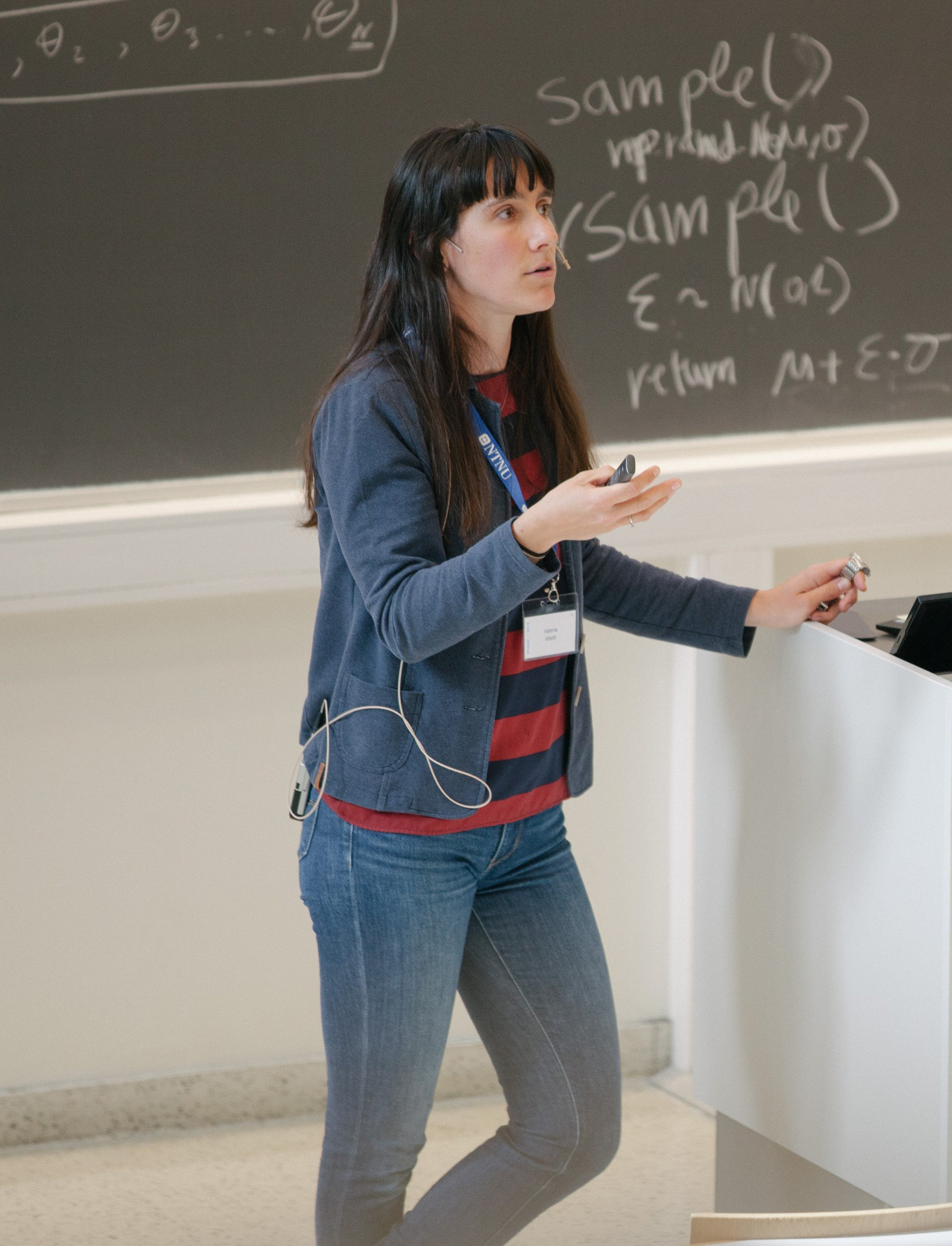Probabilistic Preference Learning with distance-based ranking models
This is a short course of the Mathematics for daTa scieNce study plan
 |
|
Bio
Valeria Vitelli is associate professor at the Department of Biostatistics, within the Oslo Centre for Biostatistics and Epidemiology (OCBE), at the University of Oslo (Norway). She holds a MSc in Mathematical Engineering (2008) and a PhD in statistics (2012) from Politecnico di Milano, the top-ranked technical university in Italy. After a postdoc period at École Centrale Paris (France), in a research group funded by Eléctricité de France to work on complex data from the energy sector, she moved to the University of Oslo, where she became associate professor in biostatistics in September 2018. Her experience spans over several areas of mathematics and statistics, including functional data analysis with applications in physiology and biostatistics, machine learning for describing people mobility, and finally statistical genomics of cancer and high-dimensional preference learning. She is now the leader of the research group at OCBE focusing on Statistical Models for High-dimensional and Functional Data.Course Description
What is preference learning? This course will give a short introduction to the topic, by describing the various scopes of a preference learning analysis, and the different types of preference data. Then, we will focus on probabilistic approaches based on the definition of a suitable metric on the permutation ranking space, the so called distance-based models, which have shown a great flexibility to various application contexts. The course will delineate the various possible distance-based modelling approaches, and give a practical introduction to both Maximum-Likelihood (ML) and Bayesian inferential estimation. For the practical part of the course, we will use R. No prior experience with preference learning or ranking models is expected, but familiarity with statistical inference, both ML and Bayesian estimation, is essential.
By the end of the course, the students will be able to:
- Understand the typical tasks in a preference learning analysis
- Understand the types of preference data that more often arise in applications
- Use classical and more recent approaches for estimating the model parameters, and for providing personalized preference predictions
Schedule
- Tuesday October 4th, 16:30-18:30 room A212: Introduction to Preference Learning. Distance-based models for rank data. Probabilistic Preference Learning in R: exploring and visualizing the data.
- Wednesday October 5th, 11:30-13:30 room A224: Distance-based models for rank data: inferential approaches (ML and Bayes). Probabilistic Preference Learning in R: fitting the model.
Recommended literature
- Marden, J. I. (1996) Analyzing and modeling rank data. CRC Press.
- Alvo, M., & Philip, L. H. (2014) Statistical methods for ranking data (Vol. 1341). New York: Springer.
- Lecture notes and slides. R scripts from the practical sessions.
Details
- Venue: Polo Scientifico e Tecnologico F. Ferrari (Povo1, rooms A212 and A224)
- Language: English
- The participation is free. Please send an email to Prof. Veronica Vinciotti to confirm your participation.
- For further information, please contact Prof. Veronica Vinciotti